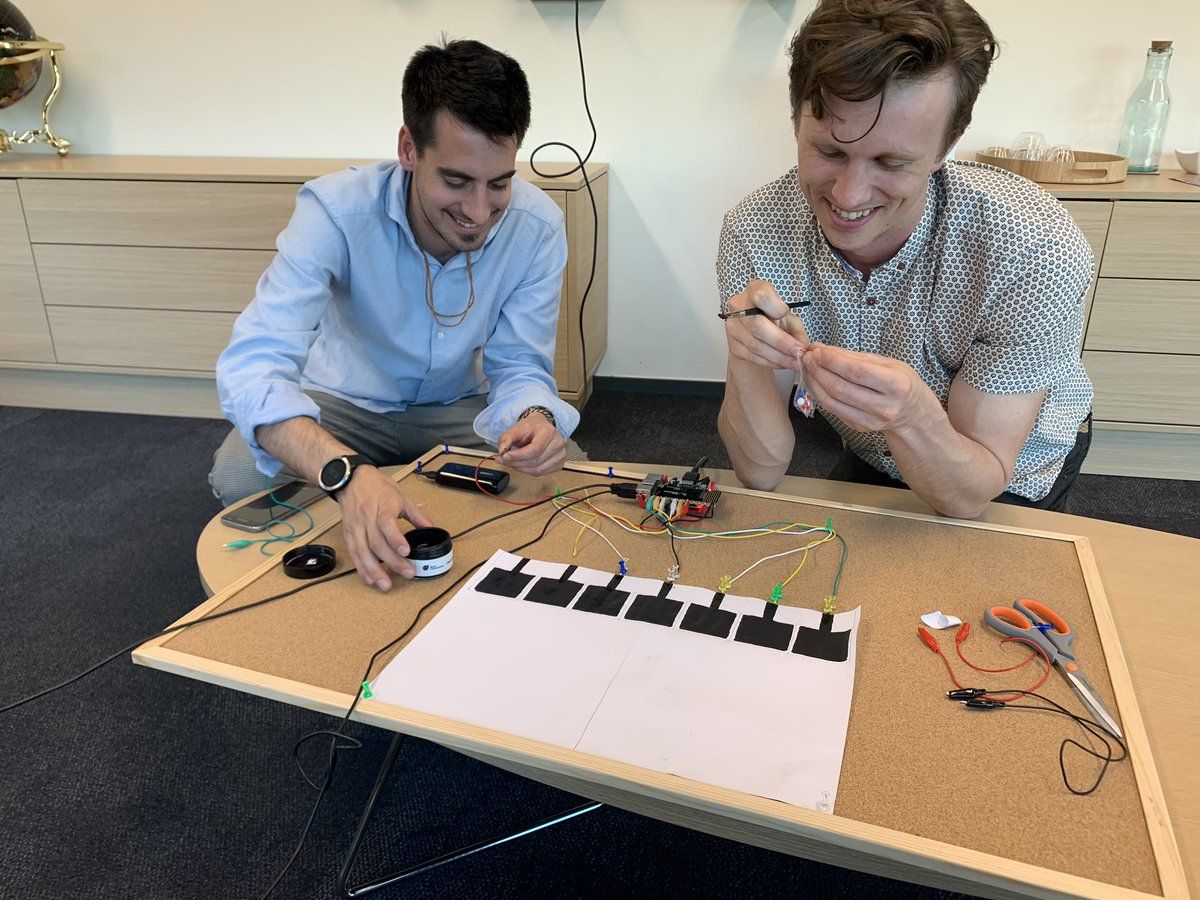UoM to host world’s first Graphene Hackathon

Manchester University’s Graphene Engineering Innovation Centre (GEIC) is to host the world’s first Graphene Hackathon, in which teams will compete to develop and prototype innovative product ideas using conductive graphene inks.
The GEIC, which specialises in the rapid development and scale up of graphene and other 2D materials applications will host the event over 24 hours.
IP, business and technical expertise will be on hand to help develop your innovative ideas, requiring no prior experience with graphene or programming.
This weekend of high intensity innovation will be held on Saturday 16 and Sunday 17 November 2019.
The aim of the Hackathon is for motivated competitors to work in teams of 4-6 participants to design and prototype a product idea that incorporates Versarien conductive graphene inks.
Versarien conductive graphene inks have the capability to create the next generation of electronics, including bendable smartphones, touch-sensitive smart devices and sensors. The inks can simply be painted onto surfaces or screen printed onto fabrics, and quickly dry to form flexible, conductive tracks.
Christopher Castle, PhD student and Hackathon team member said: “So far the team have been involved in all aspects of organising the event itself – getting sponsorship, purchasing equipment, booking speakers from companies like Google Digital Garage and Mewburn Ellis and ensuring participants have access to all the relevant buildings and facilities.
“We’ve also been working on our own projects to see what ideas we can come up with using graphene inks. For example, we made a smart novelty calendar printed with graphene ink, which syncs to your Google Calendar through a Raspberry Pi and reads out your agenda when you touch on a given day. We’re excited about graphene inks because they represent the first opportunity for non-researchers to really get to work with graphene outside of laboratory conditions.
“The Graphene Hackathon has already generated interest from scientists, programmers and dancers and we hope that combining all these diverse skillsets will provide new perspective on what’s possible with this amazing material.”
Participants will compete for cash prizes, sponsored by big-name cooperations, such as the likes of Google Digital Garage, Mewburn Ellis and Versarien. These companies will also be giving keynote speeches, as well as providing workshops to give competitors access to world-class business advice for taking their product forward.
The event is open to University students, staff and external applicants, given that they are over the age of 18.
Anyone that would like to apply would need to sign up on their website, Graphene Hackathon, before October 15th. You can apply as a ready made group, or as an individual and they will help you form a group once applications close.







